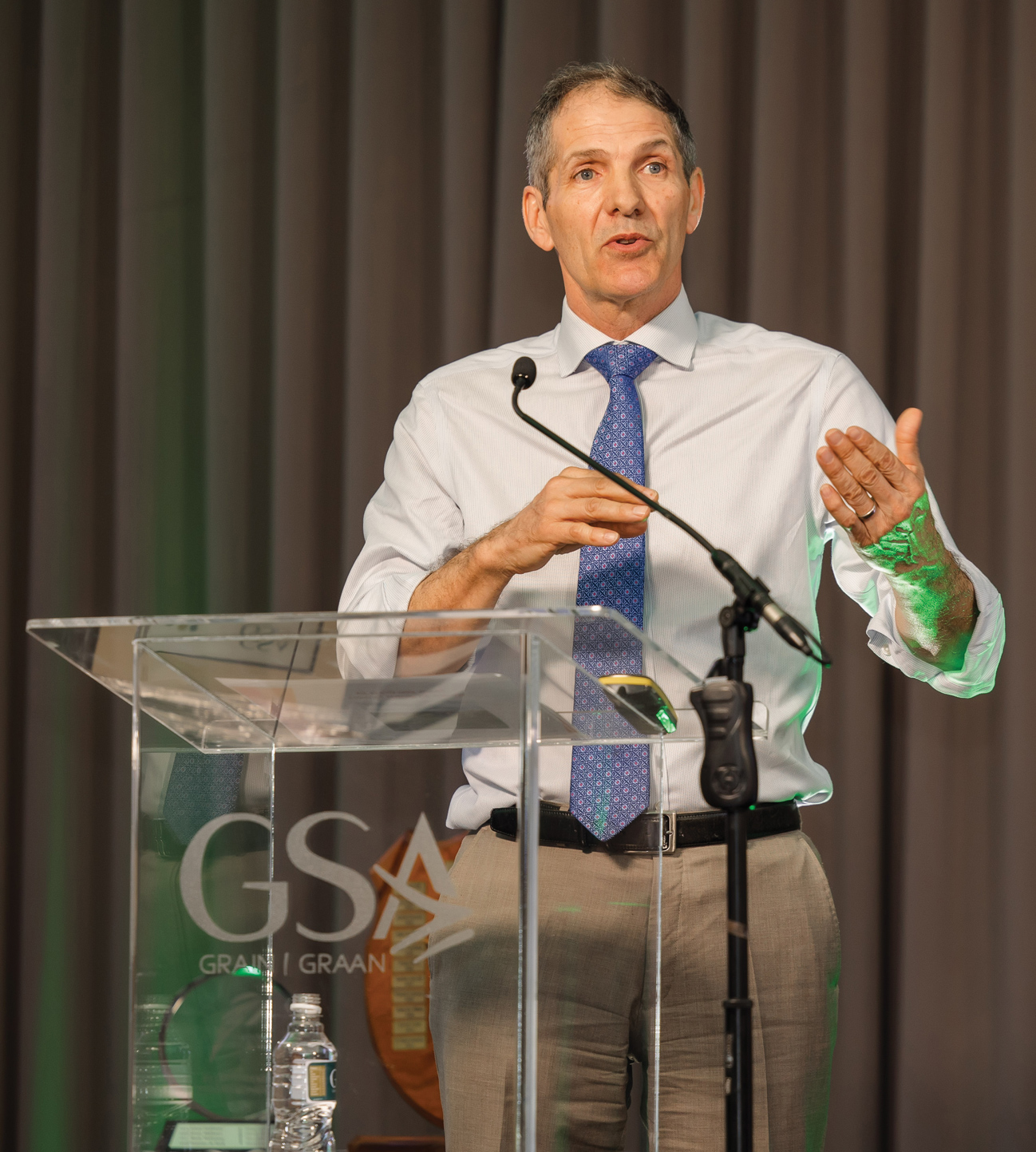Paul Temple, vice chairperson of the Global Farmer Network and a third-generation cattle and crop producer in northern England, was the keynote speaker at Grain SA’s Congress in March this year.
In his address, Temple expressed deep appreciation for Grain SA as a producer-led organisation. He praised the resilience of South African producers and shared valuable insights on adapting to evolving challenges facing agriculture today.
Farming legacy
As a passionate advocate of healthier and more sustainable food production, Temple has witnessed significant changes in agriculture in the United Kingdom (UK), particularly in the wake of Brexit. While British producers navigated a post-European Union (EU) landscape, Temple made two significant changes to his farming operation. One shift was towards regenerative farming with a strong focus on soil health. The other was a critical decision – whether to continue cattle farming or not. Ultimately, he chose to expand his herd by introducing Stabiliser genetics. He believes both choices will contribute to more sustainable and resilient farming for future generations.

Farming in the UK after Brexit
The departure of the UK from the EU marked a turning point for British agriculture. One of the most immediate impacts was the loss of EU subsidies and guaranteed access to European markets. This shift has forced many producers to rethink their business models.
One of the big changes, Temple notes, is the UK’s environmental scheme system, which he describes as ‘woefully complex’. He argues that policymakers could have implemented a much simpler approach. ‘From the outside, farming may look the same, but we are operating in an entirely different world. There are currently 76 carbon accounting measurements in the UK, and I am now at a place where I struggle to fill in all the forms required by a vast array of nongovernment organisations and government regulations. It is just so frustrating when produce that we import are not held to the same standard,’ he added.
Temple further laments a lack of innovation in livestock breeding and genetics. He admits that regenerative farming is a challenge in the UK’s maritime climate, where wet conditions hinder soil restoration and grazing rotations. ‘To counter these challenges there must be adaptability and access to better technology,’ he explained.
Looking to the future
Looking beyond the UK, Temple expressed concern about global protein production. ‘Globally, we will struggle to meet demand,’ he warned, highlighting the increasing pressure on agriculture to provide sufficient high-quality protein for a growing population. The answer he believes is new technologies, improved breeding programmes, and smarter land management strategies.
‘Demographics will be agriculture’s biggest challenge,’ he added. ‘The question is how to build business structures that make sense to younger generations. How do we retain the incredible skill sets required to keep agriculture sustainable?’
He further spoke about carbon accounting, which aims to measure and manage farming’s environmental impact. While Temple acknowledges its potential benefits, he argues that ‘carbon accounting lacks credibility’. Without standardised metrics and robust verification systems, he worries that it may become another bureaucratic burden rather than a meaningful tool for sustainability.
One advantage of farming in the UK is easy access to markets. ‘In South Africa, you farm on a much larger scale, but logistics make reaching your market a challenge. In the UK, we have a market right on our doorstep,’ Temple noted.
He also acknowledged aspects of South African agriculture that UK producers might envy. ‘Your climate allows for a much longer harvesting window – we only get on average 150 hours per season. Your large storage facilities are impressive, and you have access to biotech, which we do not,’ he added.
Temple’s message to Congress and to South African producers in general is clear: those who can adapt will thrive in an ever-changing agricultural landscape. What is needed in the end is technological advancement and sustainable practices. He is adamant that producers should not look to politicians for direction and leadership. ‘My real fear is that politicians are too slow to act, and they do not realise their role in food security. It is my hope that we can all help them acknowledge that responsibility. The smart future is seeing more of a partnership with those who we supply to as well as with those who supply to us.’ In closing he reminded South African producers that they have a major role to play in global food production.



















